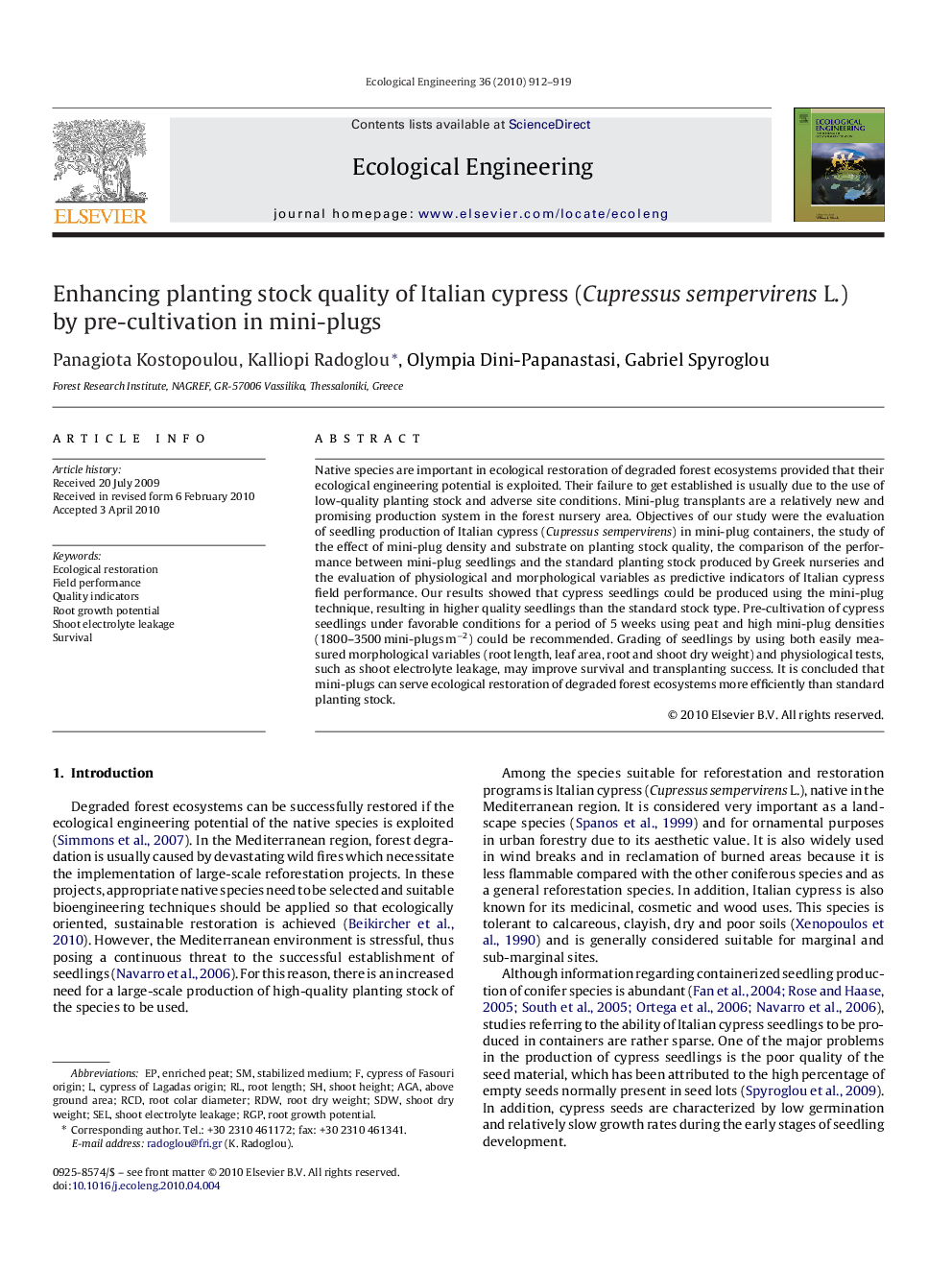| Article ID | Journal | Published Year | Pages | File Type |
|---|---|---|---|---|
| 4390442 | Ecological Engineering | 2010 | 8 Pages |
Abstract
Native species are important in ecological restoration of degraded forest ecosystems provided that their ecological engineering potential is exploited. Their failure to get established is usually due to the use of low-quality planting stock and adverse site conditions. Mini-plug transplants are a relatively new and promising production system in the forest nursery area. Objectives of our study were the evaluation of seedling production of Italian cypress (Cupressus sempervirens) in mini-plug containers, the study of the effect of mini-plug density and substrate on planting stock quality, the comparison of the performance between mini-plug seedlings and the standard planting stock produced by Greek nurseries and the evaluation of physiological and morphological variables as predictive indicators of Italian cypress field performance. Our results showed that cypress seedlings could be produced using the mini-plug technique, resulting in higher quality seedlings than the standard stock type. Pre-cultivation of cypress seedlings under favorable conditions for a period of 5 weeks using peat and high mini-plug densities (1800-3500 mini-plugs mâ2) could be recommended. Grading of seedlings by using both easily measured morphological variables (root length, leaf area, root and shoot dry weight) and physiological tests, such as shoot electrolyte leakage, may improve survival and transplanting success. It is concluded that mini-plugs can serve ecological restoration of degraded forest ecosystems more efficiently than standard planting stock.
Related Topics
Life Sciences
Agricultural and Biological Sciences
Ecology, Evolution, Behavior and Systematics
Authors
Panagiota Kostopoulou, Kalliopi Radoglou, Olympia Dini-Papanastasi, Gabriel Spyroglou,
